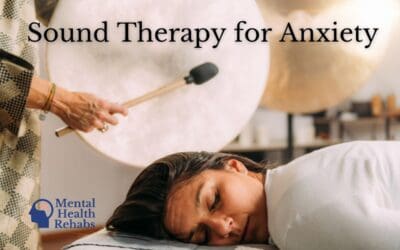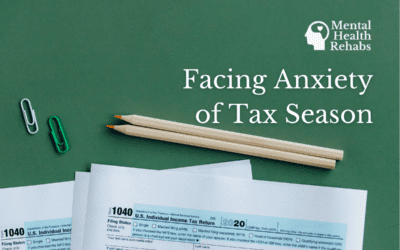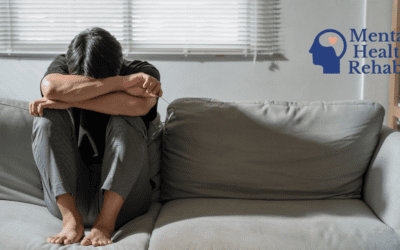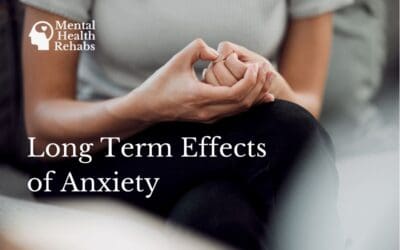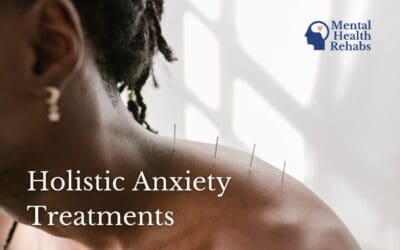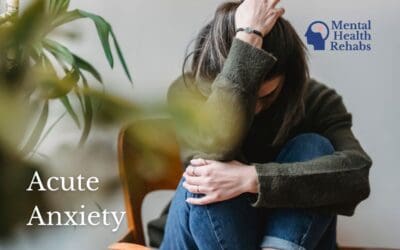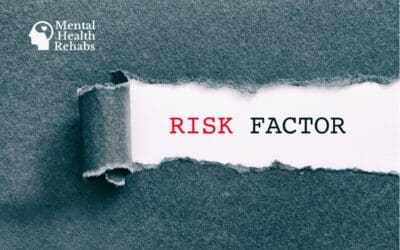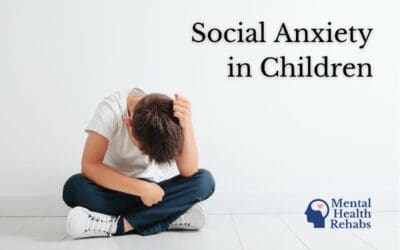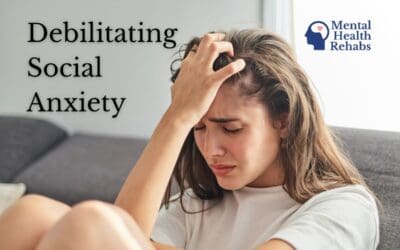Anxiety.
Anxiety is the single most common mental health issue. Millions of Americans are struggling with this right now, but it is treatable!

What is Anxiety?
Everyone experiences anxiety. Anxiety becomes a problem when it becomes a disorder. Anxiety disorders that interfere with the activities of daily living, dominates one’s thoughts, and/or lead to other pathologies must be proactively addressed. Everyone should know anxiety has the potential to prove debilitating at all ages. If you are suffering from anxiety, don’t lose hope. Anxiety is treatable.
Your ability to overcome anxiety is largely dependent on your willingness to ask for assistance from a mental health specialist. If your anxiety disorder is dominating your thoughts or if it prevents you from living a normal life, do the smart thing by asking for assistance from a mental health counselor.
Symptoms
If you feel anxious when you drive a car, prepare for a date, or prior to a test or presentation at work, your anxiety is perfectly normal. There are specific symptoms of severe anxiety that render one unable to live a productive and fulfilling life. An ongoing fear or worry that persists throughout the morning, day, and night is not healthy. In particular, anxious feelings that occur in situations that are not threatening are especially problematic.
The most common symptoms of anxiety include nervousness, an irrational fear of the unknown, a negative outlook, irritability, restlessness, and a general dread/malaise that weighs down the patient’s mind.
The symptoms described above are emotional and thought-based symptoms of anxiety. Anxiety also has physical symptoms as well. If you have an upset stomach including but not limited to diarrhea and frequent urination, it is a clear physical symptom of anxiety. Additional physical symptoms of anxiety include general fatigue, headaches, twitching, shaking, sweating, and insomnia, meaning the inability to sleep. Anxiety-sufferers also commonly experience shortness of breath and/or a racing heart rate.
Causes
The specific cause of your anxiety is unique to you. Though some causes of anxiety overlap across patients, most patients’ anxiety have idiosyncratic cause(s). Many patients suffer from anxiety as it results from several different factors working in unison. As an example, some patients have a genetic predisposition toward anxiety. Ask your parents, grandparents, and other relatives about the family’s history of mental health and you might find one or several people in your family have suffered from anxiety.
Anxiety is also caused by environmental factors. Some individuals suffer from social anxiety in which they dread interacting with others in-person. Other patients’ anxiety stems from a violent event in which they were harmed by another person or even a traumatic experience such as feeling pain during a dental procedure.
The death of a family member, physical/emotional abuse, and a long battle with illness are also tied to the onset of anxiety. Meet with a mental health counselor, discuss your anxiety in-depth, and this professional will help you determine the true cause of your anxiety. The overarching goal of seeking professional guidance to proactively address anxiety disorders is a meaningful improvement in your quality of life moving forward.
Diagnosing Anxiety Disorders
The diagnosis of anxiety is best performed by a mental health counselor with years of experience. Do not attempt to perform self-diagnosis based on something you read while surfing the web. Some patients suffering from anxiety disorders initially meet with a doctor for an evaluation. This analysis includes a physical examination, lab tests, and an interview/discussion with the patient to discuss his or her anxiety. The doctor will determine if your condition is actually anxiety, hyperthyroidism, and/or another malady. If the doctor determines an underlying physical illness is not the root cause of your problem, he or she will likely refer you to a mental health counselor.
You can also reach out to us for assistance. We provide a directory of mental health treatment facilities for patients suffering from anxiety disorders and other mental health problems. We will help you find a treatment center close to where you live or work that uses the Diagnostic and Statistical Manual of Mental Disorders (DSM) to pinpoint the specific anxiety disorders that are the underlying cause of symptoms. These professionals will determine if anxiety is the sole disorder or if there are several underlying disorders. The next step is to identify the treatment modality or modalities best for your unique type of anxiety.
Types of Anxiety Diagnosis’
Generalized Anxiety Disorder
Panic Disorder
Social Anxiety Disorder
Treatment for Anxiety Disorders
The treatment modality that is best for your anxiety is not guaranteed to be optimal for another patient suffering from anxiety. This is precisely why it is so important that you receive a professional diagnosis and treatment plan tailored to your unique psychology and also your physical symptoms of anxiety.
The specific anxiety disorders you suffer from manifest through unique symptoms. This means each specific anxiety disorder requires a nuanced treatment plan. Some patients benefit from the use of medication such as antidepressants. Others are better served with psychotherapy, also known as talk therapy. Complementary treatment including techniques that promote relaxation and stress relief are also effective for some patients dealing with anxiety disorders.
Meet with a mental health counselor and to determine which of these specific treatment modalities is best for your unique anxiety. A combination of treatment modalities might be best based on your unique anxiety disorder(s). What matters most is that you receive personalized treatment that helps you overcome your anxiety or at least better manage it moving forward.
Anxiety Medications
Prozac
Valium
Xanax
Related Conditions
Plenty of patients suffering from anxiety also suffer from one or several other mental health conditions. Sadly, several mental health conditions have the potential to worsen a patient’s anxiety to the point that it becomes debilitating. Be proactive, reach out to a mental health specialist for assistance and you will have done your part to make progress in your quest to overcome anxiety.
Our confidential helpline is open ’round the clock to connect anxiety sufferers with counselors, doctors, mental rehabilitation specialists, and local support groups. If you are suffering from anxiety along with depression, insomnia, an eating disorder, ADHD, and/or substance abuse of any type, get in contact with a mental health provider near you by dialing (866) 548-1240.
Related Articles
How Sound Therapy is Helping Thousands Ease Their Anxiety
Anxiety is one of the most common mental health conditions that affects millions of people worldwide. Traditional anxiety treatments such as medication and therapy can be helpful but have limitations. Sound therapy is a holistic approach to anxiety management that...
Facing Anxiety of Tax Season
As the tax season rolls around, it brings with it a wave of anxiety for countless individuals. Despite the universal nature of tax obligations, the emotional impact of this season varies greatly, with many experiencing heightened levels of stress and anxiety. It...
6 Factors You Shouldn’t Ignore When It Comes to Mental Health
It's easy to sideline mental health amidst daily commitments and routines in our fast-paced world. Often, we only recognize its significance when facing burnout or health issues. The gravity of this oversight is evident in the fact that, as of 2021, 9.2 million U.S....
6 Long Term Effects of Anxiety
It’s normal for people to feel anxious from time to time, but clinically diagnosed anxiety can be immensely disruptive to a person’s life and have far-reaching—and sometimes permanent —impacts on physical and psychological well-being. 3 Long-Term Physical...
9 Holistic Treatment Options for Anxiety
Anxiety is one of the most common mental illnesses among Americans, affecting over a third of adults at some point in their lives. Prescription drugs like benzodiazepines are effective and fast-acting which has made them a popular solution that’s frequently prescribed...
What Is Acute Anxiety?
The term acute anxiety is relatively informal and generally refers to a panic attack, a sudden and unexpected episode of intense fear that causes multiple physical and psychological symptoms. This type of anxiety is extremely stressful and often makes people feel like...
Understanding the Risk Factors for Anxiety
Odds are, you know someone who suffers from anxiety. It’s the most common type of mental disorder in America, affecting nearly one in five of the U.S. adult population. Why is this condition so incredibly prevalent? While science has yet to pinpoint the exact cause of...
Social Anxiety Disorder In Children
We all might think of social anxiety as a grown-up problem, but it usually starts much younger than some may think. Middle school is the most common age for kids to be diagnosed with social anxiety. However, it often goes unnoticed for long periods before parents...
How to Deal with Debilitating Social Anxiety
Everyone feels anxious from time to time, especially in social situations. First dates, work presentations, parties where you don’t know anyone else. For some people, however, this nervousness spills into minor, everyday interactions and is so intense it stops them...
Top 5 Methods To Reduce Anxiety
According to recent studies, more people are affected by anxiety than by any other illness or disease. If symptoms of anxiety are left untreated, the impacts could impact day-to-day tasks and overall quality of life. Don’t wait...
Don’t Struggle Alone.
Get Help Today.
Reaching out for help for yourself or a loved one can be overwhelming and stressful, but it doesn’t have to be. If you are struggling to find the right help, or even know where to get started, please feel free to call our 24/7 helpline.
Begin your mental health journey right now!


